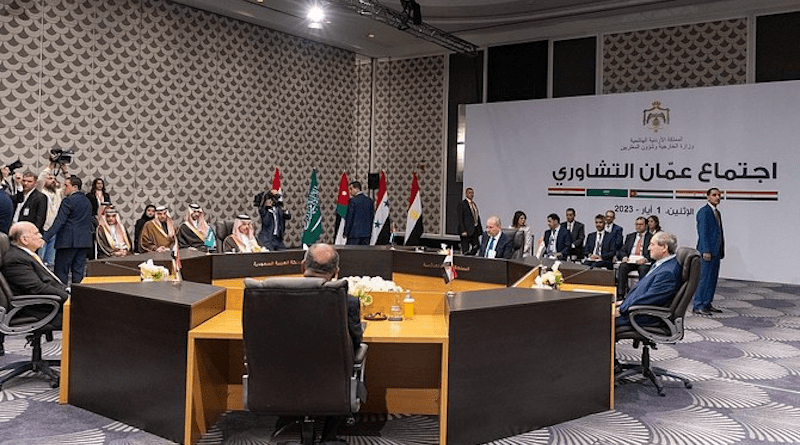Syria Vows To Halt Narcotics Trafficking At Meeting Of Arab Foreign Ministers
By Arab News
By Raed Omari
Syria agreed on Monday to halt drug trafficking across its borders with Jordan and Iraq, and identify who was producing and transporting narcotics.
The pledge came at a landmark meeting in Amman of foreign ministers from Saudi Arabia, Egypt, Iraq and Jordan, also attended by Syrian Foreign Minister Faisal Mekdad.
The aim of the meeting was to discuss how to normalize ties with Syria as part of a political settlement of the 13-year civil war that has shattered and divided the country.
A final statement after the meeting said the ministers had discussed pathways for the voluntary repatriation of millions of displaced Syrians and coordinated efforts to combat drug trafficking.
It said Damascus had agreed to “take the necessary steps to end smuggling on the borders with Jordan and Iraq” and identify who was producing and transporting narcotics into those two countries.
Syria is accused by Arab governments and the West of producing the highly addictive and lucrative amphetamine Captagon and organizing its smuggling into the Gulf.
Jordanian Foreign Minister Ayman Safadi said the meeting was “a start, and the process is ongoing” to secure an end to the conflict.
“There must be steps on the ground that lead to an improvement in the reality in which Syria and the Syrians live,” he said. A decision on Syria’s readmission to the Arab League would be made by the organization itself, Safadi said.
Jordan has urged Syria to engage with Arab states on a step-by-step roadmap to end the conflict, tackling the issues of refugees, detainees, drug smuggling and Iran-backed militias in Syria.
“There was clarity and honesty,” Safadi said of the talks in Amman, adding: “We agreed on mechanisms to start organizing their (the refugees’) safe and voluntary return, in coordination with the United Nations.”

